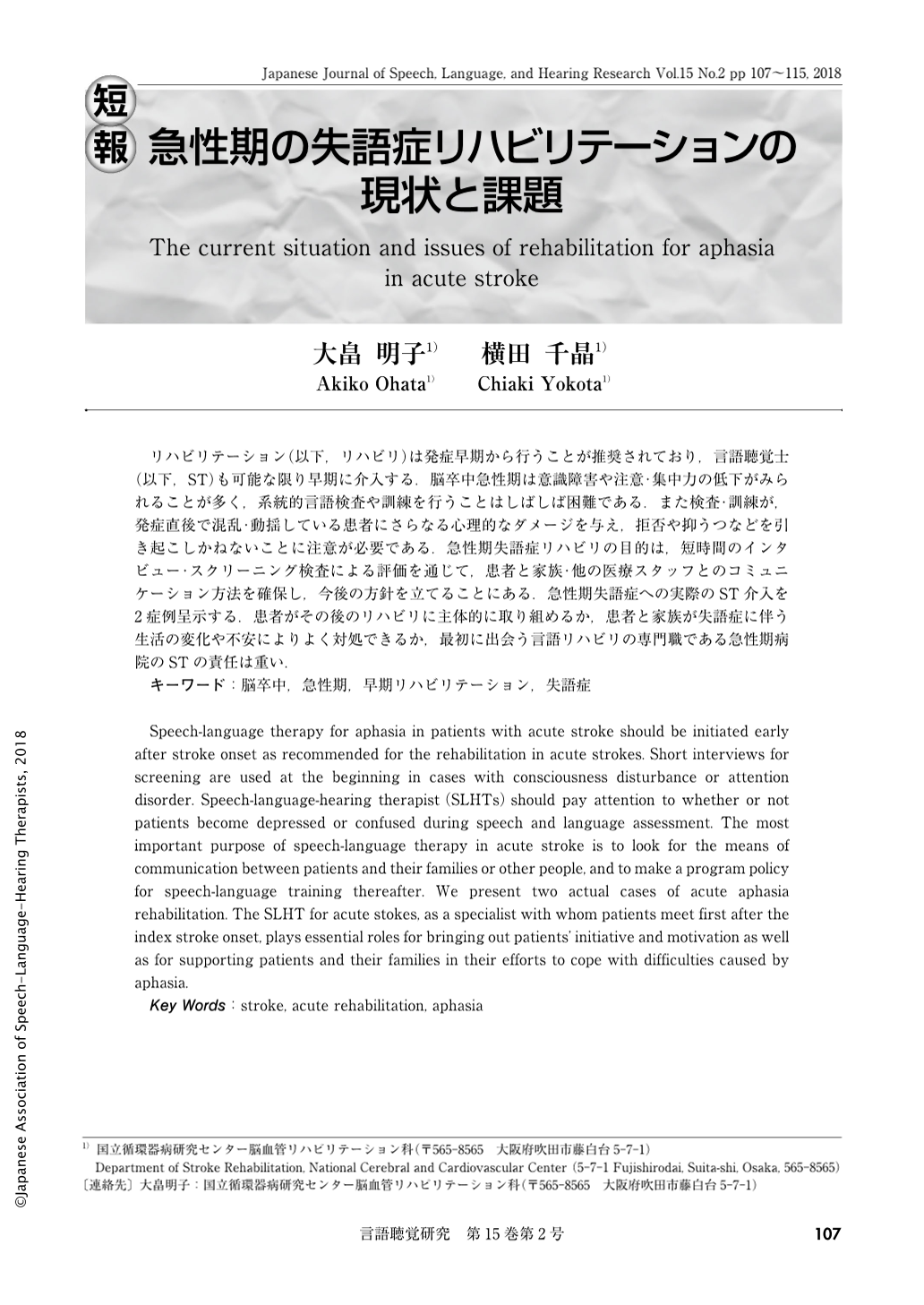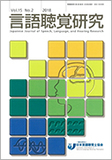Japanese
English
- 有料閲覧
- Abstract 文献概要
- 1ページ目 Look Inside
- 参考文献 Reference
リハビリテーション(以下,リハビリ)は発症早期から行うことが推奨されており,言語聴覚士(以下,ST)も可能な限り早期に介入する.脳卒中急性期は意識障害や注意・集中力の低下がみられることが多く,系統的言語検査や訓練を行うことはしばしば困難である.また検査・訓練が,発症直後で混乱・動揺している患者にさらなる心理的なダメージを与え,拒否や抑うつなどを引き起こしかねないことに注意が必要である.急性期失語症リハビリの目的は,短時間のインタビュー・スクリーニング検査による評価を通じて,患者と家族・他の医療スタッフとのコミュニケーション方法を確保し,今後の方針を立てることにある.急性期失語症への実際のST介入を2症例呈示する.患者がその後のリハビリに主体的に取り組めるか,患者と家族が失語症に伴う生活の変化や不安によりよく対処できるか,最初に出会う言語リハビリの専門職である急性期病院のSTの責任は重い.
Speech-language therapy for aphasia in patients with acute stroke should be initiated early after stroke onset as recommended for the rehabilitation in acute strokes. Short interviews for screening are used at the beginning in cases with consciousness disturbance or attention disorder. Speech-language-hearing therapist(SLHTs) should pay attention to whether or not patients become depressed or confused during speech and language assessment. The most important purpose of speech-language therapy in acute stroke is to look for the means of communication between patients and their families or other people, and to make a program policy for speech-language training thereafter. We present two actual cases of acute aphasia rehabilitation. The SLHT for acute stokes, as a specialist with whom patients meet first after the index stroke onset, plays essential roles for bringing out patients' initiative and motivation as well as for supporting patients and their families in their efforts to cope with difficulties caused by aphasia.

Copyright © 2018, Japanese Association of Speech-Language-Hearing Therapists. All rights reserved.


